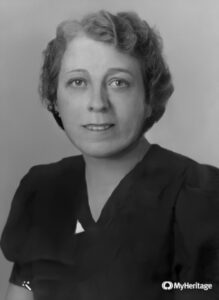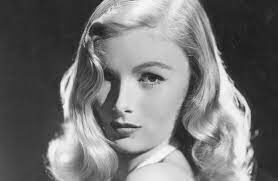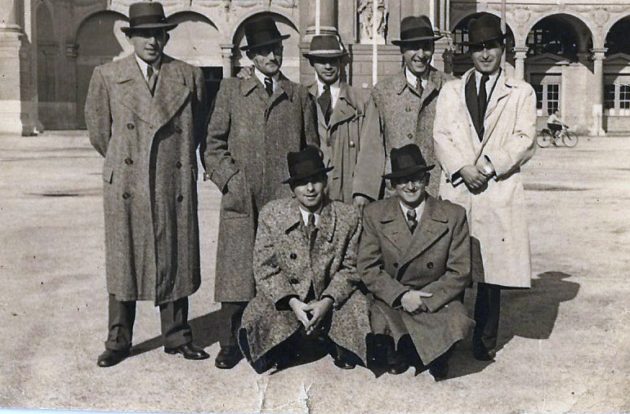
Among Ashkenazi Jews, it’s traditional to honor the dead by naming children after them, but considered bad luck to do so if there’s a chance that the relative so honored might still be alive. This made the immediate aftermath of World War II problematic for many with missing family members, Jewish naming-wise.
When my older sister was born, our father was still uncertain about the fate of his mother and sister. He hedged his bets by choosing a truncated version of his mother’s name for her —only to find out, within a year, that both of the women in his immediate family had been murdered by the Nazis. My mother’s assertion that he had a “kind of nervous breakdown” upon learning of their fate makes sense. It’s easy to guess that my father never entirely got over the pain of being unable to save his mother and sister; I don’t recall him ever talking about either one of them.
By the time I came along, five years after my sister, my father’s guilt over his losses was less raw–and his certainty about their fate might have brought him a measure of peace. In any case, my name wasn’t mediated: I am just plain Edith, after my only aunt.

Well, Edith Brenda actually.
And it is my middle name that suggests my father was ready to channel some of his earlier, more carefree days in Vienna. My legal documents will forever bear the mark of my father’s ardor for a minor movie star, Brenda Marshall (1915–1992). She is best known for her role in Sea Hawk, starring Errol Flynn, and her marriage to William Holden. Her acting career, such as it was, pretty much ended years before I was born.
And my cinematic middle name was no fluke or fleeting mood. More evidence of my father’s continuing interest in Hollywood stars of the 1940s lies in another memory: When I was little and my hair fell into my face, my father would teasingly call me Veronica Puddle, a play on Veronica Lake, a glamorous actress famed for her peekaboo waves. Looking back, I am touched by what a funny and lovely thing it was to say to a chubby child whose mother constantly criticized her for being overweight.

In America, my parents had no social life. They never went out to eat or to the movies; they didn’t have any friends, as far as I knew. But it was different in Vienna, at least for my father. My favorite photograph shows him with a group of young men, all wearing wide-brimmed hats and wider grins and looking very dapper. My father is the second from the right, top row. I don’t think I ever saw him quite so happy in all the years I knew him. Still, I saw remnants of his charm. My father had a wry sense of humor. If I complained that an event I was anticipating hadn’t come to fruition, he would say, So there you’re sitting with your clean ears. If you wondered aloud if a person was Jewish, he might say that they looked like two Jews.

Edith and Brenda are both old-fashioned names that I never particularly liked; I don’t mind Edie, but hardly a day goes by without someone deciding it should be pronounced “Eddie.” My father was a complex, often difficult man; it’s impossible to say what he would have been like had his life not been so harshly interrupted. But I adored him and now I’ve come to see that both names he bestowed on me were gifts that reflect my own complex, often difficult personality.


I love the sense of humor and word play that comes with Veronica Puddle.
And, really, does anyone ever like the name they were given?
Yes, it’s pretty funny isn’t it? So are you saying you weren’t fond of Vera, Bunny?
I loved this tribute to your father through an exploration of the names he gave you. I have always loved stories about names and naming, and when my mother was pregnant with brothers 6 and 7, I followed her around with a little notebook of names and thus ended up naming both of them. A month ago, my daughter gave birth for the first time to a little girl named Edith after her Danish great grandmother. Like you, I like Edie but am not fond of Edith and had permission, since rescinded, to call the baby Edie, so I have, graciously, in my opinion, acquiesced. I did say, even before she was born that I would love the baby, so I would doubtless come to love her name.
Thank you — and congratulations on your grandbaby! When she is older, she will doubtless decide what variation of her name she would like to be called and how she would like it to be spelled (I used to practice spellings like Edyie, after Edyie Gorme). Other people will give her nicknames too. So call her what her mother likes for now, and enjoy!
Wise, witty and very meaningful.
Thank you, Diane!
What a loving tribute to your father who had a spark of humor trying to escape his burden. What is it about Jewish mothers who harp about their daughters being overweight? Like nagging is going to change the occasion. Not! And if it’s not about being overweight, it’s something else.
If you ever want a pen name, you can be E.B. Jaro.
Thanks, Karyn! Yes, Jewish mothers can be very critical, but I think that may be true of a lot of ethnic groups and/or immigrants (e.g, Amy Tan’s stories). But the weight thing, ugh.
I like that pen name!